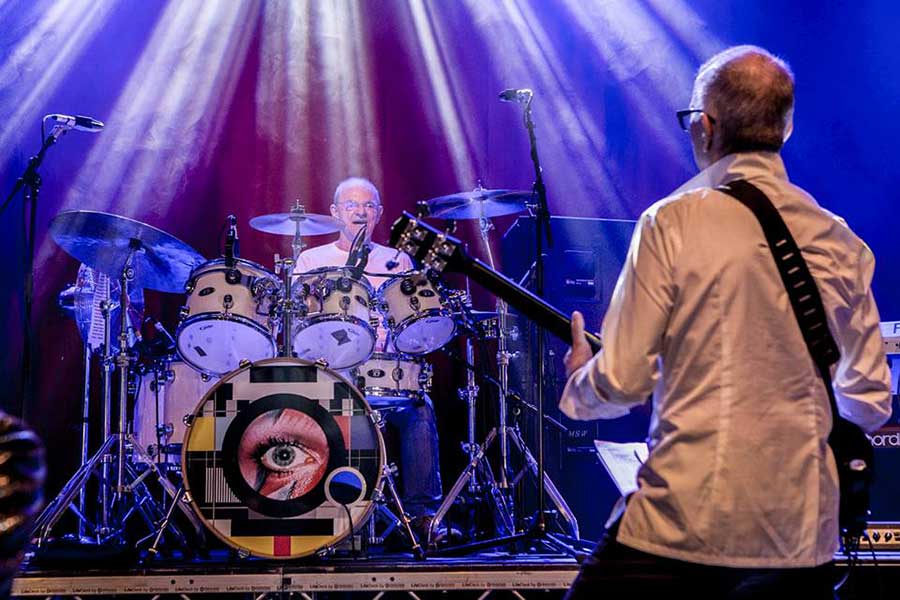It’s no secret that David Bowie loved Philadelphia.
He saw some of his earliest live-performance successes as the androgynous, gender-bending, bisexual, glam-rock hero Ziggy Stardust at Upper Darby’s Tower Theater in 1972 and ‘73; he made himself a fixture at other local clubs such as Artemis. A year later, as a Diamond Dog, he would return to Upper Darby shorn (mostly) of the glitter for the rough-edged concert recording of “David Live.” Several months after his time in Darby, he would return again, only this time for sessions at North 12th Street’s Sigma Sound Studio for the plastic soul of “Young Americans.”
“David loved Philly, I don’t need to tell you that,” said Tony Visconti, the producer beside Bowie on many of his finest albums — from the aforementioned works to 1970s “The Man Who Sold the World,” the experimental Berlin period of “Low, Heroes and Lodger” and the final four albums of Bowie’s life, including “Blackstar,” released earlier this year, just days before his passing.
On April 2, Visconti’s Holy Holy will appear at the Tower Theater in tribute to Bowie’s hard-rock classics.
Visconti and Ziggy Stardust’s Spiders from Mars drummer Woody Woodmansey were last in the Philadelphia area when they played Phoenixville as Holy Holy, an ensemble dedicated to playing “The Man Who Sold the World” — the first album of Bowie’s that both Woodmansey and Visconti played upon (the latter as bassist and producer) — and other early Bowie rockers. The album was never played live as, shortly after its release, Bowie began work on the flighty pop of “Hunky Dory,” then Ziggy.
“‘The Man Who Sold the World,’ however, is where we heard so many of Ziggy’s themes,” Visconti said, referring to Stardust’s twilight sexuality, nihilistic tendencies and other space-face oddities. For the uninitiated (and there are many, as the album hardly dented U.K. or U.S. charts upon release), “The Man Who Sold the World” is famous in the Bowie catalogue for its original cover. This is the one where the singer is reclining across a velvet chaise lounge in a cream and blue satin “man’s dress” designed by famed British fashion designer Michael Fish. With his long bleached-blonde locks, a coquettish pout, that dress and that pose — all inspired by a pre-Raphaelite painting by Dante Gabriel Rossetti —Bowie’s interest in exploiting his androgyny was on full display.
Holy Holy played in Phoenixville the Friday after Bowie’s sudden passing, a tough task considering everyone in the band — Visconti in particular — were broken-hearted.
“We considered stopping the tour as we were in Toronto at the time,” said the bassist/producer, “but we kept going and asked each audience their permission to play through the grief. They were bawling their eyes out — in joy and sadness. So were we.”
It’s true that Visconti indeed cried on stage that night as he discussed his and Bowie’s love of the Philly area. Visconti also announced to the packed-to-the-rafters house in Phoenixville that Holy Holy would return this spring to the scene of the crime — the Tower Theater — to play once again.
“We’ll play that album, of course — I don’t think we’ll ever get tired of that — but we’ll always have surprises in the second half of the show,” Visconti said.
Holy Holy will probably never touch any song from Gamble and Huff’s The Sound of Philadelphia-inspired “Young Americans” but I couldn’t resist asking about that 1975 album with its original producer. Originally meant to include countless instrumentalists from the TSOP crew, these old-school gents were rumored to be leery of Bowie — perhaps his sexuality, perhaps his cultural voyeurism/vampirism — and “simply didn’t want to give David their sound,” Visconti said. Instead, Bowie rehearsed his crack band in the Sigma Sound Studio and recorded much of the soulful classic (save for “Across the Universe” and “Fame,” which were recorded at Electric Lady Studios with John Lennon in January 1975) throughout November 1974 in Philly.
“I can’t tell you how much your city meant to him — and me too,” said Visconti.
Holy Holy plays 8:30 p.m. April 2 at Tower Theater, 69th and Ludlow streets. Tickets start at $29.50. Call 800-745-3000 or visit www.Ticketmaster.com.
